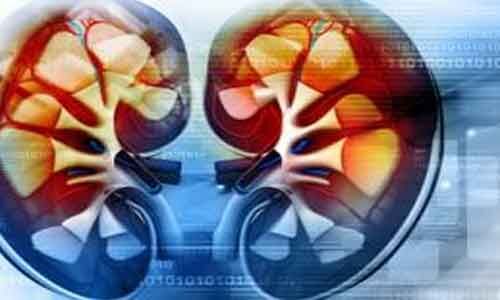- Home
- Medical news & Guidelines
- Anesthesiology
- Cardiology and CTVS
- Critical Care
- Dentistry
- Dermatology
- Diabetes and Endocrinology
- ENT
- Gastroenterology
- Medicine
- Nephrology
- Neurology
- Obstretics-Gynaecology
- Oncology
- Ophthalmology
- Orthopaedics
- Pediatrics-Neonatology
- Psychiatry
- Pulmonology
- Radiology
- Surgery
- Urology
- Laboratory Medicine
- Diet
- Nursing
- Paramedical
- Physiotherapy
- Health news
- Fact Check
- Bone Health Fact Check
- Brain Health Fact Check
- Cancer Related Fact Check
- Child Care Fact Check
- Dental and oral health fact check
- Diabetes and metabolic health fact check
- Diet and Nutrition Fact Check
- Eye and ENT Care Fact Check
- Fitness fact check
- Gut health fact check
- Heart health fact check
- Kidney health fact check
- Medical education fact check
- Men's health fact check
- Respiratory fact check
- Skin and hair care fact check
- Vaccine and Immunization fact check
- Women's health fact check
- AYUSH
- State News
- Andaman and Nicobar Islands
- Andhra Pradesh
- Arunachal Pradesh
- Assam
- Bihar
- Chandigarh
- Chattisgarh
- Dadra and Nagar Haveli
- Daman and Diu
- Delhi
- Goa
- Gujarat
- Haryana
- Himachal Pradesh
- Jammu & Kashmir
- Jharkhand
- Karnataka
- Kerala
- Ladakh
- Lakshadweep
- Madhya Pradesh
- Maharashtra
- Manipur
- Meghalaya
- Mizoram
- Nagaland
- Odisha
- Puducherry
- Punjab
- Rajasthan
- Sikkim
- Tamil Nadu
- Telangana
- Tripura
- Uttar Pradesh
- Uttrakhand
- West Bengal
- Medical Education
- Industry
Certain environmental chemicals linked with poor kidney health

Washington, DC -- Researchers have found links between various chemicals in the environment and a higher risk of kidney disease. The findings appear in an upcoming issue of Clinical Journal of the American Society of Nephrology.
Exposure to certain chemicals may contribute to the development of chronic kidney disease (CKD), but the growing number of chemicals being introduced into the environment has made it difficult to understand the extent of the problem and to decipher which compounds are especially toxic to kidney health.
To investigate, Jeonghwan Lee, MD, PhD (Seoul National University Boramae Medical Center) and his colleagues tested hundreds of chemicals for potential links to CKD, through what is known as an environmental-wide association study. "Recently, people have been exposed to more environmental chemicals than before. Of these chemicals, only a few are known for their effects on diseases such as CKD," said Dr. Lee. "Moreover, the impact of newly introduced chemicals is not known at all."
The researchers analyzed information on 46,748 US adults who participated in the National Health and Nutrition Examination Survey from 1999 to 2016, and they looked for associations between 262 chemicals measured in urine or blood with signs of kidney disease--specifically, albuminuria (excess urinary excretion of the protein albumin) and low estimated glomerular filtration rate (eGFR), a measure of kidney function.
Among the 262 environmental chemicals, 7 (3%) showed significant associations with higher risk of albuminuria, lower eGFR, or a composite of both albuminuria and lower eGFR. These chemicals included metals and other chemicals that have not previously been associated with CKD.
Specific findings include:
High blood and urine levels of cotinine (found in tobacco) and high blood levels of 2,5-dimethylfuran (a volatile organic compound) and cadmium (a heavy metal) were associated with albuminuria.
High blood levels of lead and cadmium were associated with lower eGFR.
High blood levels of cadmium and lead and 3 volatile compounds (blood 2,5-dimethylfuran, blood furan, and urinary phenylglyoxylic acid) were associated with the composite of both albuminuria and lower eGFR.
A total of 23 chemicals--including serum perfluorooctanoic acid, 7 urinary metals, 3 urinary arsenics, urinary nitrate and thiocyanate, 3 urinary polycyclic aromatic hydrocarbons, and 7 volatile organic compounds--were associated with lower risks of one or more manifestations of CKD.
Additional studies that investigate the mechanisms by which these different chemicals in the environment can affect the kidneys are warranted. An accompanying editorial by James Kaufman, MD (New York University School of Medicine and VA New York Harbor Healthcare System) notes that this is a daunting task. "Meanwhile, we need to make sure that workers have appropriate protective equipment when exposed to toxic chemicals and that we all have access to clean, safe water," he wrote.
For more details click on the link: http://dx.doi.org/10.2215/CJN.06780619
Hina Zahid Joined Medical Dialogue in 2017 with a passion to work as a Reporter. She coordinates with various national and international journals and association and covers all the stories related to Medical guidelines, Medical Journals, rare medical surgeries as well as all the updates in the medical field. Email: editorial@medicaldialogues.in. Contact no. 011-43720751
Dr Kamal Kant Kohli-MBBS, DTCD- a chest specialist with more than 30 years of practice and a flair for writing clinical articles, Dr Kamal Kant Kohli joined Medical Dialogues as a Chief Editor of Medical News. Besides writing articles, as an editor, he proofreads and verifies all the medical content published on Medical Dialogues including those coming from journals, studies,medical conferences,guidelines etc. Email: drkohli@medicaldialogues.in. Contact no. 011-43720751


